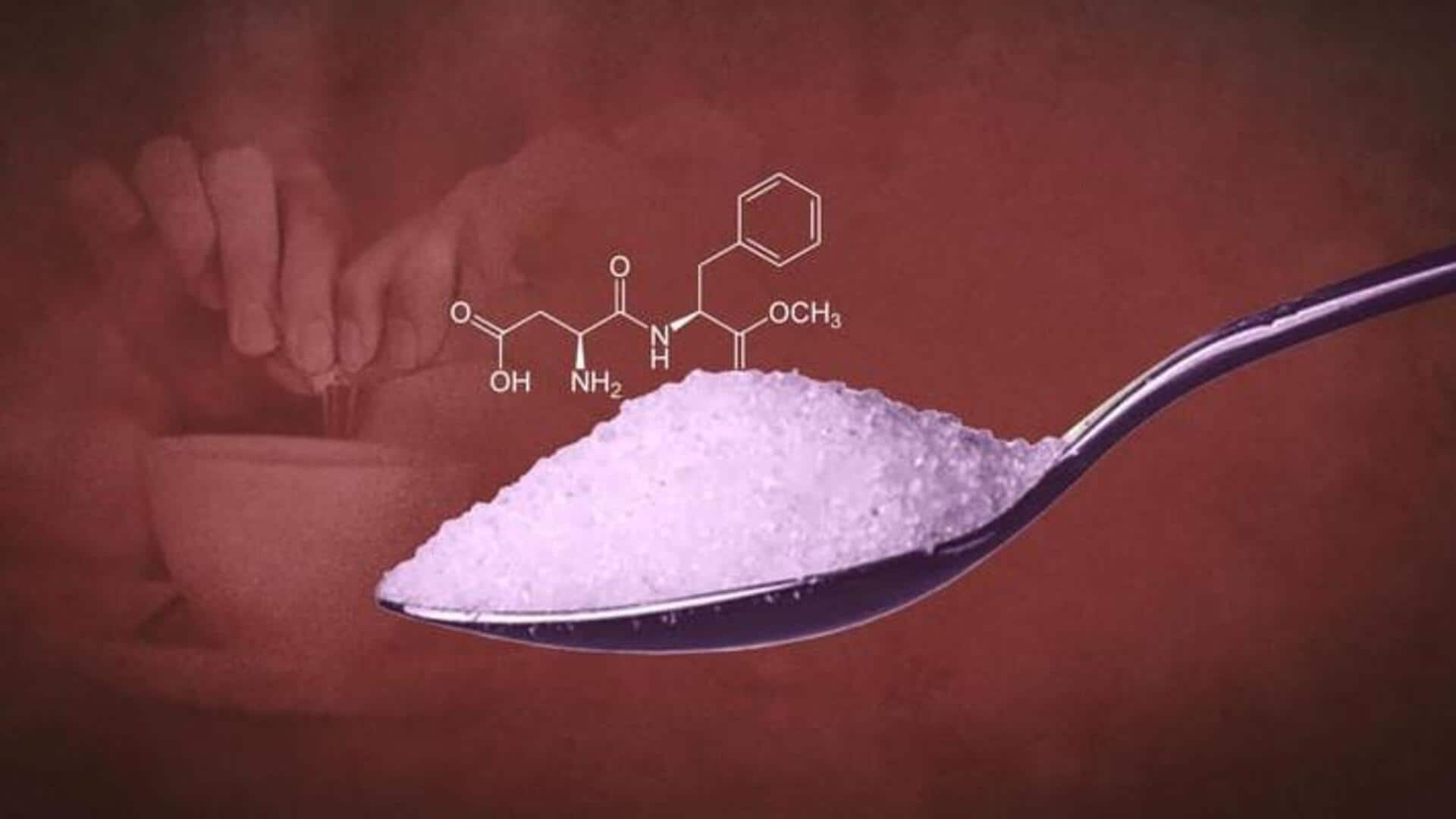
How much aspartame is safe for you
What's the story
Popular artificial sweetener aspartame has become the center of controversy among regulatory bodies. The World Health Organization (WHO) declared that aspartame is a 'potential carcinogen,' adding that it was safe when consumed within daily safety limits. Now, the US Food and Drug Administration (FDA) has refuted WHO's claims about aspartame's carcinogenicity. That makes one wonder, how much aspartame is actually safe for consumption.
WHO
First, what was WHO's call on aspartame's carcinogenicity?
WHO's internal agency called International Agency for Research on Cancer (IARC) is behind the classification of aspartame as a 'possible carcinogen.' Their official announcement is supported by a new report published in the renowned medical journal, The Lancet. IARC took its call based on three human-based studies in the US and Europe that assessed the potential link between cancer and drinking artificially sweetened beverages.
Studies
All three studies found aspartame was linked with cancer
The study from Europe, which lasted 11 years and involved 475,000 people, found artificially sweetened soft beverages were linked to a higher risk of a type of liver cancer, specifically hepatocellular carcinoma. Two US-based studies noted an increased liver cancer risk associated with artificially sweetened drinks. One investigation was based on people with diabetes and the one one involved men who didn't smoke.
Information
Data from human-based investigations was combined with animal-based studies
IARC then collated the information from three human-based investigations with animal-based studies that associate aspartame with malignant and benign tumors in rats and mice. However, they do note that further studies are needed for a better understanding.
Classification
IARC classifies aspartame under Group 2B 'possible carcinogen'
From the studies, IARC classifies aspartame under Group 2B "possible carcinogen." This class comprises 323 such agents including aloe vera extract and Asian pickled vegetables like kimchi. The other classes are as follows: Group 1 has 126 agents that are "carcinogenic to humans." Group 2A contains 95 agents classified as "probably carcinogenic." Group 3 includes 500 agents that are "not classifiable as a carcinogen."
FDA
FDA argues that IARC's results are based on "limited evidence"
The evidence IARC obtained concerning the carcinogenicity of aspartame is not very strong. FDA carried out its own assessments of the studies IARC relied on and argues that the latter's conclusion is based on "limited evidence" and that there are "significant shortcomings" in the studies. It also points out that the studies could be affected by "chance, bias" and other limitations.
FDA
The established safety limit for aspartame is 40mg/1kg body weight
"Aspartame is one of the most studied food additives in the human food supply," said the FDA. "FDA scientists do not have safety concerns when aspartame is used under the approved conditions," per the agency. At present, the safe consumption limit has been capped at 40 milligrams of aspartame per 1 kilogram of body weight per day.
India
What is India's call on aspartame's use?
Last week, the FSSAI (Food Safety and Standards Authority of India) said it was performing a detailed review of the WHO guidelines. "We don't have to follow the West or East as India is in a powerful situation...We are working on what the effect of consuming aspartame or other sweeteners can have on the Indian population," said HS Oberoi, FSSAI's advisor.
Information
FSSAI will establish its own food safety guidelines
The FSSAI will take its own call on the regulation of aspartame. The agency will carry out its own risk assessments and would establish guidelines regarding the use of artificial sweeteners.